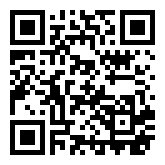Abstract:
While the necessity of justice is innate to human nature, a precise understanding of its components and realization process remains a central concern of scholars and a pressing need of society. Gaining insight into the Qur'anic perspective on justice requires a comprehensive analysis of the relevant verses. This study seeks to formulate a theory regarding the “process of realizing social justice” by organizing and analyzing Qur'anic verses that include the terms ‘adl (justice) and qist (equity). Accordingly, nearly fifty verses containing these two keywords were selected. From approximately seventy keywords within these verses, twenty-five primary terms were extracted. Furthermore, from a broader set of eighty verses, positive equivalents were identified for fourteen key negative terms. Based on the dichotomies of “action versus condition” and “qualities versus effects,” the primary positive keywords were categorized into four groups and aligned with the domains of justice realization—namely needs, resources, obligations, and rights. The widespread persistence of just behavior among individuals gradually fosters a just social condition, which in turn leads to the manifestation of both behavioral and structural effects of justice across the society. Therefore, the Qur'anic process of realizing social justice may be delineated in four stages: 1. Needs: truth and good; 2. Resources: rightful leadership, knowledge, divine law (sharīʿa), righteousness (birr), and legal boundaries (ḥudūd); 3. Obligations: sustained collective faith, adherence to knowledge and law, observance of boundaries, enactment of righteousness, piety, economic responsibility, benevolence, fulfillment of duties, reform, expression, and clarification; 4. Rights: the widespread establishment of trust, security, recourse, public benefit, growth, stability, perfection, and optimal realization (taʾwīl aḥsan).
 / Assistant Professor, Department of Economics, Imam Khomeini Education and Research Institute / ghasemiasl@iki.ac.ir
/ Assistant Professor, Department of Economics, Imam Khomeini Education and Research Institute / ghasemiasl@iki.ac.ir



